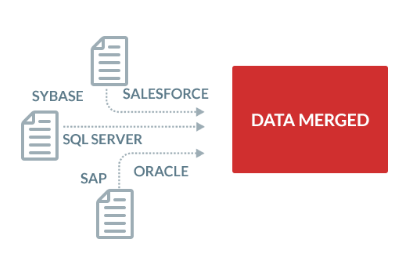About a decade back the concept of data lake first took shape and immediately had a positive impact on the business community. It was unheard of in those times to have all unstructured, semi-structured, and structured data in one single repository. But it took some time before data lakes could get over the initial teething problems and become a viable alternative to the existing data marts and data warehouses. Organizations had to bide their time before they could process their raw data and derive meaningful insights from it. Hence, when Snowflake Data Lake was created it provided all the benefits that businesses were looking for.
The structure of data lakes is so created that it can store high volumes of data that can be processed later to get incisive insights about various aspects of an enterprise. All these are stored in one single location as against the earlier versions where they lay scattered in various silos such as data marts and data warehouses. With Snowflake Data Lake operating in the cloud, it is now very easy to manage both structured and unstructured data that includes tables and JSON.
Snowflake Data Lake
Snowflake is a cloud-based data warehousing solution that is based entirely in the cloud. Hence, it brings to the table all the advantages of the cloud. The most important is its unlimited computing and storage facility to customers. Users can scale up and down in usage whenever required and pay only for the quantum of resources used. The plus point here is that businesses do not have to invest in additional software and hardware infrastructure whenever there is a spike in demand for computing or storage capabilities.
The Snowflake Data Lake has an architecture that can be extended to facilitate easy data movement in the same cloud environment. An example will clear the point better. Suppose data is generated via Kafka and placed in a cloud bucket. Now, from this bucket, the data can be transformed into a columnar format and persisted into the conformed data zone. This helps businesses avoid the worries of having to choose from a data lake or Columnar Databases
Snowflake Data Lake can also enable native data loading and data analytics in various formats and configurations. Since Snowflake is cloud-based it can auto-adjust to unlimited data computing and data storage needs.
Snowflake has brought data lake architecture to an altogether new level through a multi-cluster platform based in the cloud. Hence, its features have more than fulfilled the needs of modern businesses for one single high-performing data repository for the generation of reports and data analytics. This is the reason why top businesses around the world have implemented Snowflake Data Lake as their data management system.
Here are a few reasons why Snowflake is the ideal Data Lake for the modern business ecosystem.
- Snowflake is a high-performing data management platform and multiple users can simultaneously work on multiple workloads and execute intricate queries without facing any drop in performance or speed lag.
- The platform has high elasticity and flexibility and any volume of computing resources can be allotted to a workload or user depending upon specific requirements. The allocation of quantum of resources is automated and changes dynamically in real-time. The computing engine scales up and down automatically without affecting concurrent running queries.
- Since the storage facility of the Snowflake Data Lake is without limits, the platform can effortlessly ingest massive volumes of data in any format – unstructured, semi-structured, or structured – such as JSON, CSV, tables, Parquet, and ORC.
- The one thing going for businesses is the affordable price structure of this Data Lake. Payment is as per rates fixed by the baseline cloud storage providers AWS S3, Google cloud platform, Microsoft Azure, and more. Users pay only for the resources used thereby making Snowflake Data Lake a cost-effective proposition.
- Such is the structure of this Data Lake that database administrators can control and monitor the platform completely across all workloads.
- Data can be easily combined and moved. This ensures a high level of consistency in multi-statement transactions with cross-database joins.
- Snowflake Data Lake takes care of complete data management activities and organizations do not have to allot resources for data monitoring jobs such as data protection, data security, performance tuning, and others. Business owners can therefore focus on their core activities.
Snowflake Data Lake has given a new dimension to the concept of data lake architecture and has unified various data silos into one platform. It has eliminated the need to deploy, maintain, or develop different systems to meet data management needs. It is for the first time that organizations can get the benefit of a single enterprise cloud platform that can effectively manage data across all data formats as well as tables and JSON in a holistic way. They also get the benefits of cloud scaling and affordable pricing, as well as all the requirements of data management such as performance, security, and control, that is so critical for a Data Lake.

